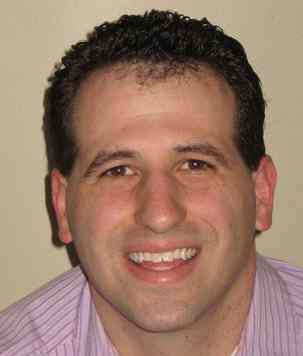 ADHD has become such a popular diagnosis these days. It is labeled as a disorder, when in fact many of the symptoms of ADHD can be seen as strengths in adults and children. Just what is ADHD and what does it really mean?
ADHD has become such a popular diagnosis these days. It is labeled as a disorder, when in fact many of the symptoms of ADHD can be seen as strengths in adults and children. Just what is ADHD and what does it really mean?
It’s time we set the record straight and get really clear about one thing: Children with ADHD (as well as adults) are just as capable of being successful as the next person.
- The Problem With Being “Normal” – In our society, we tend to label things that we don’t understand or that simply don’t fall into line with what we see as “normal.” Schools are typically designed for the middle 50%, or perhaps even 30% of students. What does that mean? Schools ask all of our children to follow the same rules. They typically expect that all children, regardless of learning style or unique talents, follow the same rules and complete tasks the very same way. The problem: This rules out creativity and expression. The solution: Children with ADHD need to have the freedom and opportunity to express their creative desires in a manner that might be a little different than what most of their peers need.
- What You Aren’t Taught In School – Schools do a good job teaching the basic, fundamental skills a child needs to have in today’s society. Yet at the same time, they overlook the importance of fostering creativity, passion, energy, and many other qualities that are necessary as we grow into adulthood. These qualities are the strengths we talk about when we see a child with ADHD. Energy can be misunderstood for hyperactivity… Creativity can be misinterpreted as daydreaming or not focusing on tasks… Passion can can sometimes be seen as disrespect… Disorganization can be seen as an inability to focus… Yes – while some of this might be true – what are we sacrificing if we do not look at these qualities as potential strengths to inspire and lead the world?
- What Else Might It Be? – This is the one question I ask every single parent to consider. ADHD seems to be the go-to diagnosis when a child shows the slightest sign of difficulty with focus and attention, organization, or in completing tasks. These behaviors are not necessarily problems, but instead signals that something else is going on. We must never forget that our children are young and impressionable. Their minds and bodies are constantly changing. Not to mention, they are incredibly influenced by what is going on in the world around them. The bottom-line is that these “symptoms,” or characteristics as I like to call them, can represent so much more. Children with ADHD need love, support, encouragement, nurturing, and a lot of room to explore and take chances.
- Children Need To Be Children – It is not unheard of today for a child to be overscheduled and overstimulated all the time. With demands and commitments for children increasing all the time, Who wouldn’t be distracted or want to “zone out” from time to time? Childhood is supposed a time of innocence and a time of exploration. We need to allow our children the opportunity to play, to be messy, and to express themselves (within reason and with safety in mind). Children diagnosed with, or labeled as having ADHD, tend to be looked at for all the bad they do. But what about all the good? These children are creative… These children are enthusiastic and passionate… These children want to be loved, just like everyone else.
- Focus On Strengths – We all have strengths, and we all have the potential to accomplish a great deal in this world. Children diagnosed with ADHD can quickly fall through the cracks because of their so-called “bad behaviors.” But imagine if we focused on their strengths and gave them the support, guidance, and opportunity to succeed. What would happen? Albert Einstein, Abraham Lincoln, and Leonardo DaVinci are among many famous figures who are suspected of having had ADHD. And while there are wildly successful people with ADHD, we must remember that these strengths must be nurtured. These strengths do not just happen if we don’t help them blossom.
Children with ADHD are not bad kids. They are simply misunderstood, and our system often does not know how to deal with or manage difference. What a child with ADHD really needs is support, advocacy, encouragement, and the opportunity to develop strengths and strategies to be successful. What would it be like if we saw ADHD as a strength instead of the disorder and deficit that we call it today?

Dr. Rory Stern of www.thetruthbehindadhd.com is a former therapist and ADHD coach, Dr. Stern has recenlty been elected to the National Board of Directors of the Attention Deficit Disorder Association http://www.add.org. He is a passionate advocate with the mission of making sure that the right information is delivered to the parents and families who need it the most.




















I always felt like it was more of an interest deficit not an attention deficit. If its not interesting… its hard to pay attention!!
Nice perspective- Interest Deficit.Seems like it could be true.